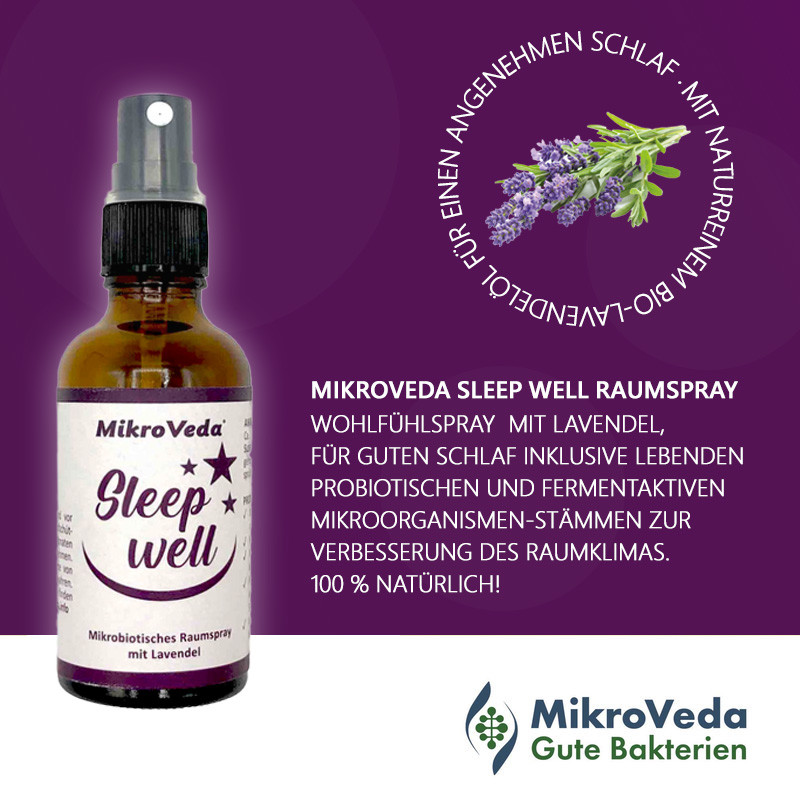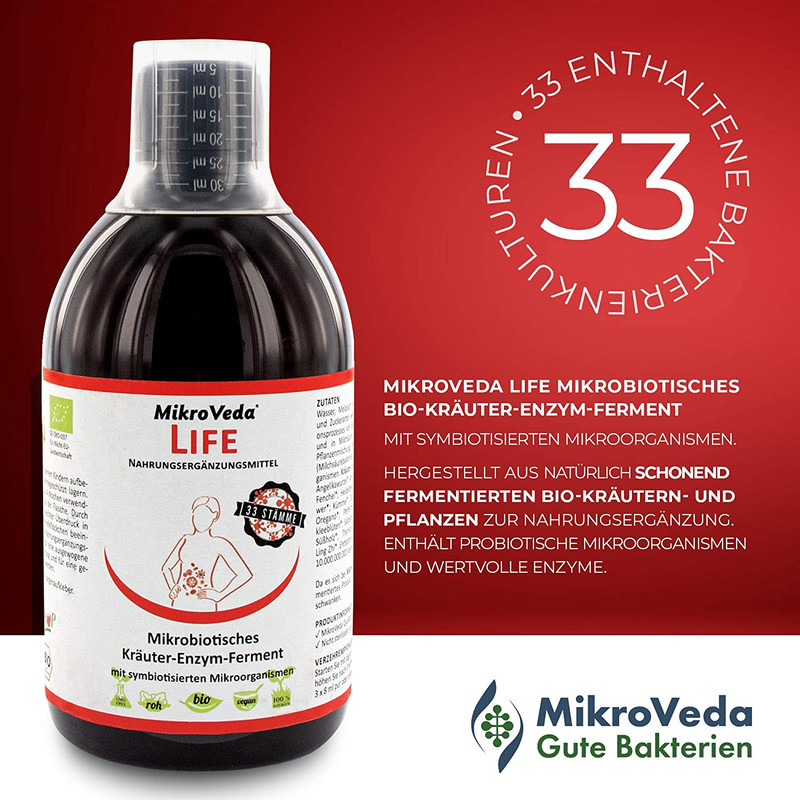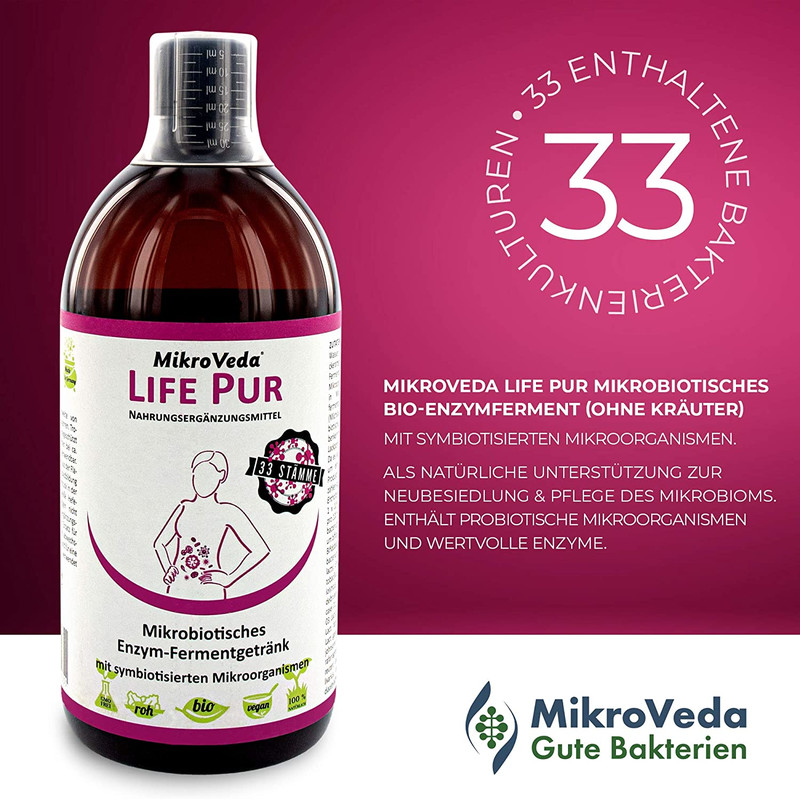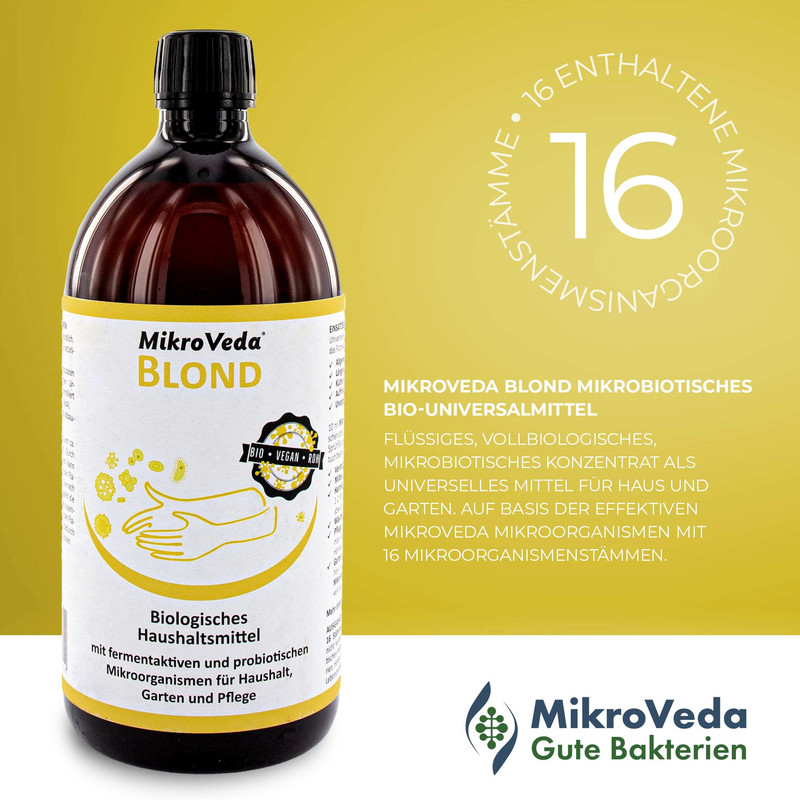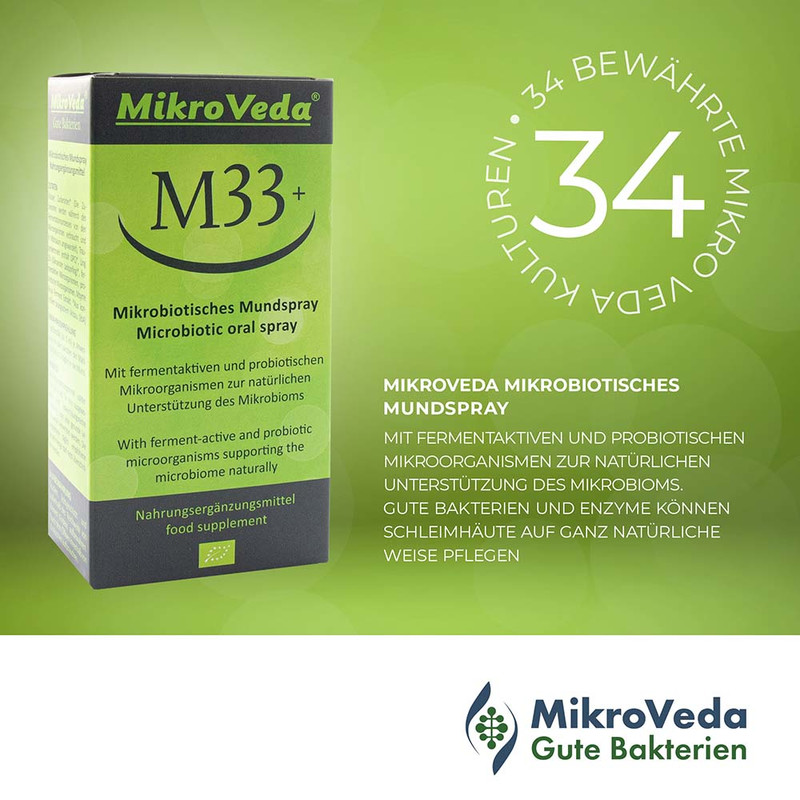From fatigue, exhaustion and listlessness to depression: How do spontaneous or often permanent mood states come about in the first place?
Is it purely hereditary factors, is it an overload in everyday life that results in them, or an unbalanced diet? Researchers are busier than ever at this time to get to the bottom of the origin. And there are already several far-reaching, but not yet conclusive findings on the subject. What makes the research so complicated? Mood states belong to the psychosomatic realm and therefore cannot be treated purely symptomatically. Likewise, the research is interdisciplinary, since sociological and neurobiological factors play a role in addition to psychological ones. However, researchers agree:
The gut microbiome significantly influences behavior and brain chemistry.
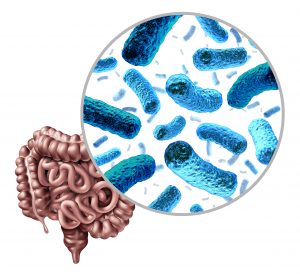
Recent research shows a significant link between mental health, bacterial population and overall gut health. Those who have chronic gastrointestinal problems are at a much greater risk of suffering from anxiety and depression.
Healthy gut – healthy mind
Balance: both good and bad bacteria make up our body’s microbiome. On our skin and throughout our body. Most of the bacteria live in the gastrointestinal tract and make up about 1kg of our body weight. So there’s a lot going on there! And their tasks there are many: they help metabolize food components and convert them into valuable molecules such as vitamins. However, they have numerous other functions in the human organism. Beneficial bacteria prevent the overgrowth of bad bacteria that can affect our well-being. Disturbing the healthy balance of bacteria in the intestinal microbiome can cause our immune system to overreact, contributing to inflammation of the gastrointestinal tract. These very processes can lead to the development of symptoms of many diseases in both the body and the brain. We usually do not even notice it. Secretly and quietly, such inflammation weakens our immune system.
How does a bacterial imbalance occur?
It is usually an interplay of several factors that causes the bacterial balance to shake:
- Unbalanced, unhealthy diet
- High consumption of industrially processed foods, especially fast food (high content of trans fats)
- Little physical activity
- Stress
- Alcohol and tobacco consumption
- Frequent antibiotic therapy
- Medication use
- Unbalanced, unhealthy diet in early childhood
- Too little “fresh" air
Thus, the microbiome of people who eat an unbalanced diet but exercise a lot and were mostly healthy in childhood is less at risk than someone who has both a poor diet and was already prone to illness and little physical activity in childhood. Thus, risk increases with a combination of factors.
Chronic inflammation is exacerbated by an accumulation of the above factors.
The gut is responsible for producing about 80 to 90% of the body’s serotonin, which regulates our sense of happiness.
Likewise, gut bacteria are also responsible for controlling the severity and frequency of inflammation throughout the body.
Those who spend more time in the woods suffer less from depressive moods!
Researchers have also found that the bacteria that reside in the air have an impact on our microbiome and our mood. Especially many of the good bacteria are found in the forest. The microclimate of the forest holds a wealth of diverse bacteria, which we absorb through our breathing. They also strengthen our microbiome and contribute to our well-being. However, the forest also offers other mood-lifting and immune-boosting aspects that benefit our health. Therefore, it is always worthwhile to spend a lot of time in the green.
My bacterial balance is in danger – What can I do?
The most important step is to reduce the factors that promote inflammation. A healthy lifestyle is a major contributor to a healthy bacterial balance in and on our bodies, and can maintain it during shorter periods of stress and strain. During such times, especially when antibiotic therapy is on the horizon, for example, we can support our bodies by specifically consuming good bacteria. However, we should not supplement these in the form of capsules in isolation, but also rely on diversity here. The good bacteria need each other to be able to function. They only fulfill their effective tasks in communication with other, equally useful bacteria of other species, as current research explains. So a targeted intake of good bacteria should be as diverse as possible. So it is probiotic bacteria such as various lactobacilli (lactic acid bacteria) and bifidobacteria, which are among the good bacteria of our microbiome. If these are already coordinated in community, you can optimally add them to your own microbiome, so that they can spread there and do their work.
MikroVeda: Good bacteria
With its ferments, MikroVeda creates an optimal environment of living bacteria, which are already in an environment that mimics the intestine and are directly able to multiply after being absorbed into the body. These are liquid enzymes that can be absorbed directly through the mucous membranes and pass optimally through the gastric juice to arrive where they are most needed.
Supplemented with a balanced, whole food diet (important as a bacterial food), balance can be restored to the microbiome.
Likewise, probiotic foods such as cottage cheese, kefir, natural yogurt, kimchi, miso, etc. are suitable. However, the bacterial diversity in such fermented products is often industrially reduced by cooking, heating, preserving and processing.
Therefore, rely on self-fermented and natural food supplements such as our MikroVeda ferments!


